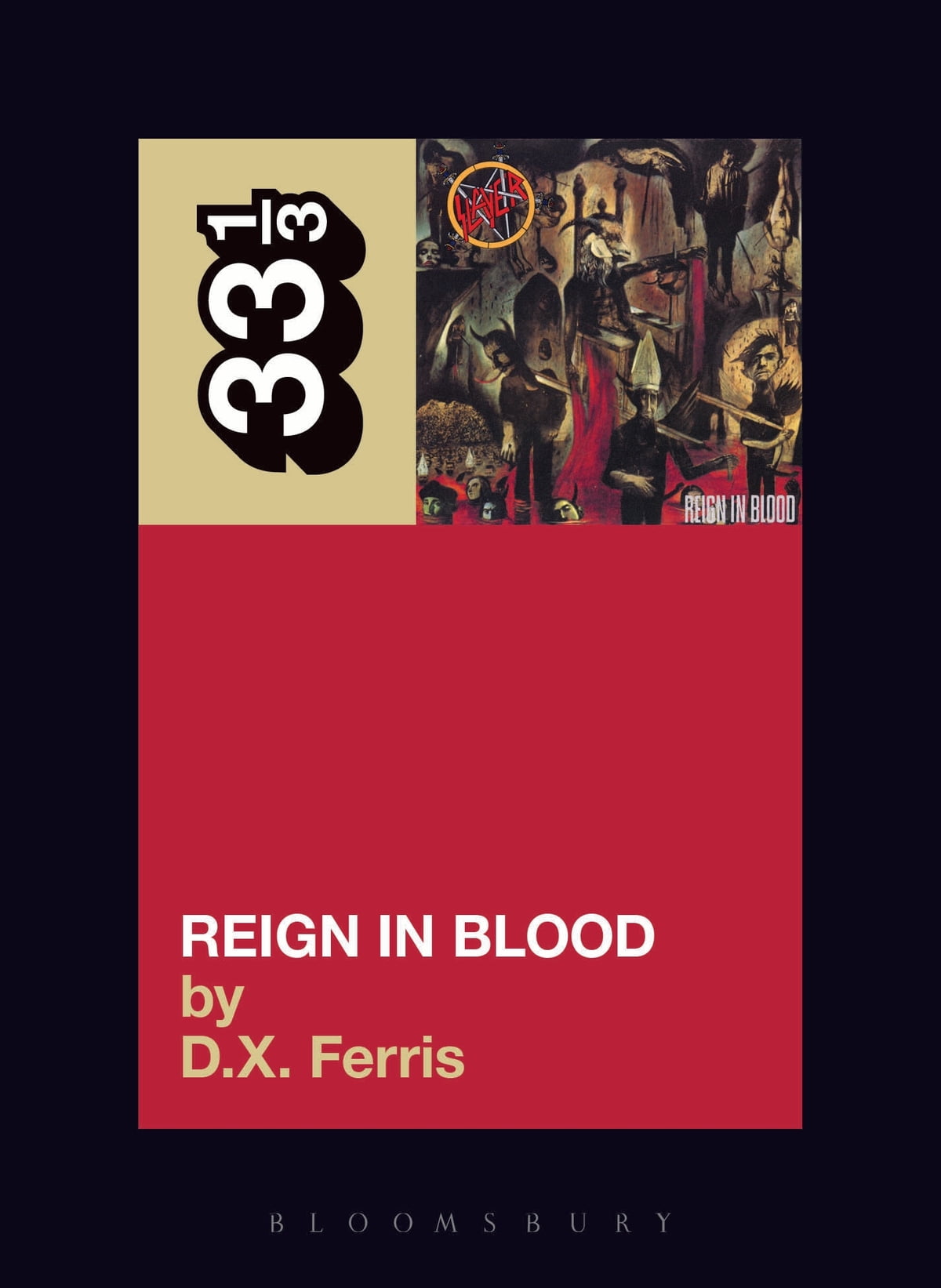Address change to reviews.pivic.com
This site is changing its address.

How to catch a butterfly?
Reign in Blood is Slayer’s second album, released just before the advent of the PMRC and other pseudo-ethical collections of outraged and equally confused people who didn’t care to understand youth, forgetting the fact that they were themselves up to the same (or worse) antics, just a couple of decades earlier.
Apart from the talk about bands like Slayer, they were immensely alluring to nations of people in search of hard and harder music. From Ferris, the author of this book:
Reign in Blood snuck up on me a couple months later, on a school bus. Some kid walked down the aisle and handed the bus driver a tape. Then began Reign in Blood.
A throat-ripping scream cut through the collective din of sixty yapping kids. Heads turned. Conversations stopped. It was like a scene from a fantasy novel, where the sky turns black, lightning splits the heavens open, and a giant glowing hand of doom floats in the darkness, summoning all the faithful, letting them know the dark lord has returned to finish his savage business. Slayer was back. Reign in Blood was here.
Yes, this is a book about an entire album, the time in which it was conceived, and its creators. Luckily, the main players who made the album didn’t give a toss about the hooplah and didn’t take themselves too seriously. They did, however, take their music seriously, always with a snide smile in place.
The album hits the listener in the face like a pile of bricks. The intro scream, the blastbeat drums, the two lead (!) guitarists’ punishingly fast and accurate playing; to the first-time listener, this surely meets one like a brick wall meets the face of a young and careless bicyclist more than as a mere slap to the face. A misnomer if anything, I think my first reaction to Slayer was ‘Jesus Christ!’
“Slayer have as much integrity as these hipster bands who carp on and on about integrity,” says Henry Rollins. “They just go out and make that record and do that tour. They don’t talk about integrity. They don’t need to. And that’s what gives Slayer undeniable power, unimpeachable credibility. If you notice, the people that are into Slayer, you can’t convince them there’s any better thing to be doing on that night. And it’s for good reason: because Slayer’s never sold out.”
There’s something about Rollins’s statement that rings true throughout Slayers’ arc: they’ve never talked shit but stood their ground. My cousin Zoran described the release of a new AC/DC album as buying a new pair of Levis 501s: ‘they’re new, and you know exactly what you’ve bought even before you try them out.’ Slayer didn’t exactly do the same thing; it feels as though they’ve always just existed, but there’s a stark before-and-after to delimit Reign in Blood:
“Reign in Blood is the album that murdered speed metal as we knew it,” declared Metal Hammer in 1994. “Ten songs in 28 minutes, each one as focused and volatile as could be, did not bear well for the Nuclear Assaults and Testaments of the world. Reign in Blood killed speed metal because no other band came close to touching it.”
Slayer signed with Def Jam, the legendary hip-hop label, and agreed to record an album with Rick Rubin as producer. The band pretty much delivered an album demo that pretty much is what ended up on record. Rubin dissuaded Slayer from using too much reverb on guitars, Andy Wallace mixed the album, and almost no effects were used at all. Some reverb was added. Some rain and thunder on ‘Raining Blood’; that’s it. The rest is the band, which is partly why people have always stuck by Slayer: their straightforward, hard, brutal, non-apologetic stuff is all in the in-your-face music. They were four guys who did what they did best, without any kind of theatrics à la Guns ‘n’ Roses or Metallica. No ballads, no symphony orchestra; it all was very close to punk but was definitely thrash, made by the same man-boys for ages. This album not only solidified their reputation but changed their genre.
Naturally, label heads thought the album was made by Satan-worshipping Nazis. The band never had anything to do with that hooplah, which says a lot about the music. This book reflects some of what the band thinks of the making of the album, and it’s all factual: there’s very little drama in the book, apart from album reviews and moral panic from elsewhere. Their fanbase probably appreciate this book, one that makes one thing clear: people who love Slayer do so with their heart and soul. To quote High on Fire frontperson Matt Pike:
Fucking Slayer rules. They’ll always rule. That’s just the way it is.
